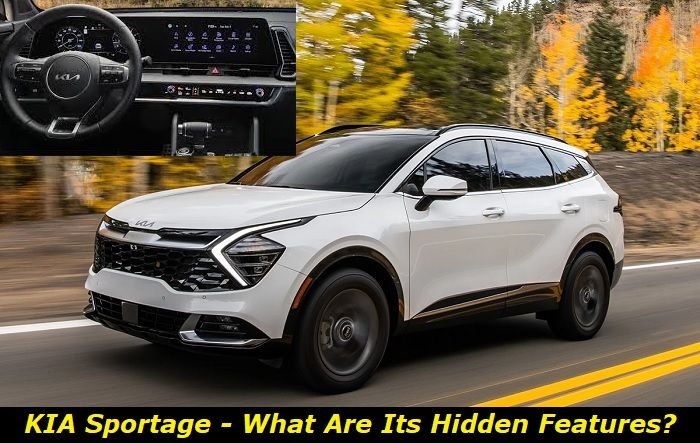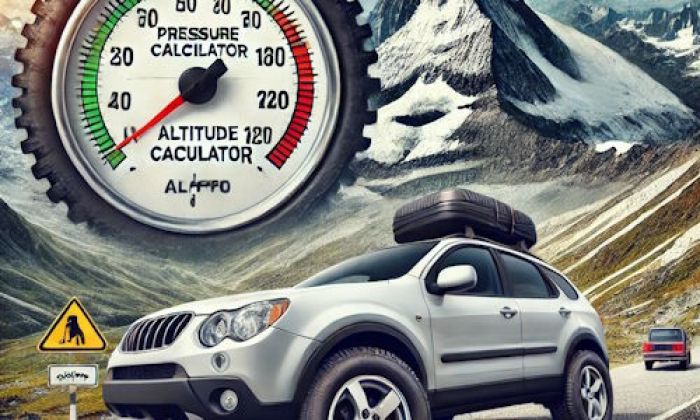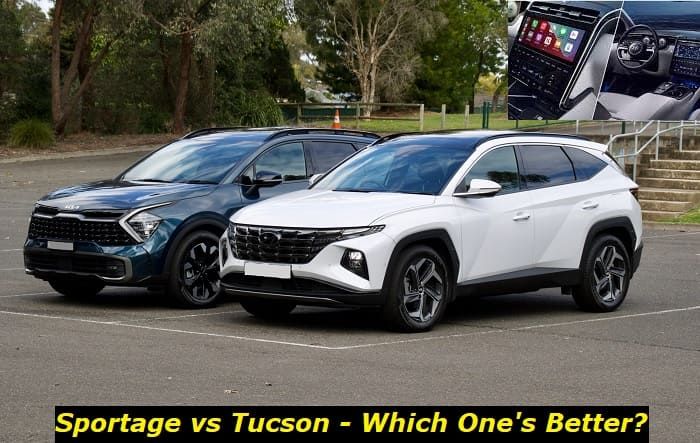The Camry XV70 is pretty old now and will soon be replaced by the next generation. But as of mid-2023, we still have this generation on offer in all Toyota dealerships in the US. And our article today is only about its hybrid version. We know how confusing the information about powerplants can be sometimes, so we prepared a really simple explanation of what the hybrid engine in the new Camry is.
Today, we'll tell you a lot about the 2.5L Hybrid A25A-FXS powerplant in the new Toyota Camry, see if it's really as durable as marketed, and whether it's good for fuel economy or not. We'll also tell you if the hybrid version of the Camry is a good choice and why you can regret choosing exactly this version of the legendary Japanese sedan car.
.jpg)
Key features and my opinion about the engine
- Production years:2017-now
- Average lifespan of A25A-FXS:160,000-180,000 miles
- Fuel supply type:combined injection D4-S (direct + port)
- Power range:174-189 hp
- Fuel efficiency:excellent
- Engine block material:aluminum
- Engine reliability score:medium
- The most common problems:noisy work, EGR cooler leaks, EGR valve getting stuck, VVTi problems.
Key facts about the hybrid engine in the new Camry
This engine is the A25 family of straight-four engines introduced in 2017, especially for the new Camry that was going to be revealed a year later. This engine has several modifications for different markets but we are talking about the A25A-FXS. This engine is also used now in more than a dozen Toyota and Lexus hybrid models and is pretty good in terms of drivers' feedback.
This is a Miller Cycle engine that proves to be really economical. But a lot of technologies will not allow it to drive as long and much as the non-hybrid A25-series engine types. Also, the manufacturer had to include a lot of ecology-friendly add-ons to keep exhaust levels as low as possible and this also affects reliability and overall longevity.
Here's what you should know about this engine:
- this is a four-cylinder engine with an aluminum block and head that offers 208 horsepower of combined power;
- the engine has a chain-driven timing system and phasers in both intake and exhaust camshafts (VVT-iE and VVT-i);
- this is a non-turbo engine, it has the combined fuel injection to avoid carbon buildup;
- the system also has electric motors that are equipped with a battery that can be 1 kWh or 1.6 kWh depending on the chosen trim;
- this is not a plug-in hybrid and it doesn't go all-electric, the gas engine is always on and it charges the battery pack;
- the gas mileage for the Camry Hybrid is claimed to be 51 MPG in the city and up to 53 MPG on highways;
- the powerplant is equipped with the Aisin-made eCVT transmission - better than simple CVT but worse than the simple automatic option;
- the powerplant takes your Camry from 0 to 60 mph in 6.7 seconds which is not bad;
- also, the manufacturer moved the battery from the trunk to the space under the rear seat leaving you more space in the trunk than in the previous generation.
Overall, the Camry Hybrid doesn't look bad in terms of specs. Its engine is a relatively simple A25-series gasoline unit, electric motors are reliable and simple, and the battery pack isn't huge, so it won't be too expensive to replace when it's dead.
Toyota wants practical technologies but needs to obey new ecology rules and compete with more tech-centered manufacturers from Japan and the US. And this makes Toyota apply technologies that make your new Camry Hybrid less durable and even less reliable. But the comparison with other hybrid sedans still seems to be positive for the Camry.
How many miles will the new Camry Hybrid last?
So, the longevity of the new hybrid engine in the Camry is not going to impress you. We think the engine and the electric part of the hybrid powerplant are going to last about 160,000 miles. Although the engine itself may last a little longer, after the vehicle hits the 150K-mile mark, it's not really wise to invest a lot in its repairs. You will have to repair one thing after another.
The battery is going to be replaced once within this estimated lifespan. We believe the 1-kWh battery pack should be replaced at 80,000 miles while the 1.6-kWh pack may last a little longer - up to 100K miles. After that, they will lose their capacity and the gas mileage will gradually deteriorate.
Replacing the battery pack is going to be expensive. But not as expensive as in EVs. As far as we are concerned, there is no extra warranty for the battery, so your Camry only gets 36 months or 36,000 miles of full warranty coverage. So, get ready to spend some money on the battery pack.
But the engine itself is not bad, it can live quite long and will not spoil your mood much. It will require good regular maintenance though and also lots of attention because of some minor issues that should be addressed immediately. With bad maintenance, this powerplant will not last even 100K miles.
What are the common problems with the 2.5L hybrid engine in the new Camry?
We don't know a lot of cases with the complete failure of these powerplants. They are classic Toyota engines that go exactly the number of miles they are made for. One of the problems - it's much less durable than the non-hybrid version of the 2.5L engine in the Camry. But this is what it takes to go electric (or go hybrid, in this case).
We still found several common issues that can bother you with the new Camry Hybrid:
1. EGR cooler issues are registered by dealers
This is not the specific problem for this engine, it's common for all Dynamic Force family of engines made by Toyota. They all have EGRs and these systems are cooled by special cooling systems. The cooler of the EGR will commonly develop leaks earlier than you may imagine.
The EGR cooler will most likely leak after 40-50 thousand miles and will need replacement. It's not hard to replace it, so labor is not going to cost you much. But OEM parts for this engine cost a lot - Toyota seems to be making it of pure gold.
If you notice low coolant levels and white smoke from the exhaust, just arrange a visit to the dealer or repair shop and have the EGR cooler replaced.
2. The EGR system
But the cooler of the EGR is only the first and relatively cheap problem. At 70,000 miles, the EGR may clog and get stuck. This will lead to check engine light on your dash, gas mileage problems, limp mode, problems with a catalytic converter, etc.
The EGR should be replaced if you are still going to drive your Toyota for a year or more. Also, you can have the EGR cleaned and repaired but this will not last long and it will get stuck again pretty soon.
3. D4-S injection problems
In this engine, Toyota uses combined injection D4-S - it's the direct injection system but it works together with port injection. It's made to avoid carbon buildup which is a common problem for all direct-injection engines.
Yes, they could avoid one problem but the D4-S injection system can bring other issues. It's pretty sensitive to fuel quality and also can get clogged and fail when the fuel filter is not working properly. Change the fuel filter every year or every 10,000 miles to avoid problems. Cleaning the system may cost a lot.
4. Phasers and timing chain issues
We recommend replacing the timing chain every 80,000 miles in this engine. Otherwise, it can stretch and jump a tooth or two. Given the design of the head, the pistons in this engine may hit the valves and bend them causing the engine to get stuck. Repairs, in this case, will probably cost more than the engine itself.
Also, phasers are a common problem for all Toyota engines. They aim to improve gas mileage but they may start leaking or their actuators may get stuck and prevent valves from closing. This will lead to low compression and other problems.
What should you do to drive your Toyota Camry Hybrid longer?
Improving the reliability and longevity of the A25A-FXS engine is pretty hard. But you may try and avoid common issues by replacing the problematic parts before they should fail.
Here's what you should do:
- oil change at least every 10K miles, better more often;
- change all filters every single year or every 10K miles;
- control the condition of the EGR cooler at every regular maintenance;
- replace the EGR cooler at 50K miles;
- have the EGR inspected every 10K miles after the car hits 50,000 miles;
- replace the timing chain every 80,000 miles;
- replace the hybrid battery pack at 80-100 thousand miles.
If you follow these steps, you will be able to drive your Camry Hybrid longer than average. We believe, 200K miles is an achievable milestone. But this will require some investments on your side.
To sum up, the Camry Hybrid A25A-FXS engine is not much better or worse than other hybrid powerplants from other brands. If you love how Camry goes, you may choose to buy it. But don't expect marvelous reliability and longevity from this model.
About the authors
The CarAraC research team is composed of seasoned auto mechanics and automotive industry professionals, including individuals with advanced degrees and certifications in their field. Our team members boast prestigious credentials, reflecting their extensive knowledge and skills. These qualifications include: IMI: Institute of the Motor Industry, ASE-Certified Master Automobile Technicians; Coventry University, Graduate of MA in Automotive Journalism; Politecnico di Torino, Italy, MS Automotive Engineering; Ss. Cyril and Methodius University in Skopje, Mechanical University in Skopje; TOC Automotive College; DHA Suffa University, Department of Mechanical Engineering






Add comment